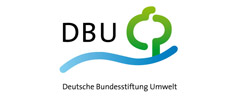Women's Policy Position Paper CSD 19
Recommendations by the Women’s Major Group for policy actions in the area of Chemicals, Waste management, Mining, Transport and Sustainable Consumption and Production patterns
01.02.2011

Integration of policies is an essential step towards sustainable development. This paper focuses on inter-linkages, crosscutting issues, and means of implementation.
We call for implementation goals with timelines and targets, leading to binding agreements, as conclusion of the CSD policy year, to ensure real action.
Cross-cutting issues
Coherence in implementation
Women call for coherence in the implementation in policies and programme. Previous outcomes and commitments of Rio, Johannesburg, the CSDs, the MDGs are not being implemented sufficiently, and there is not enough coherence in the implementation of the Multilateral Environmental Agreements.
The MDG Summit concluded that women are key to development and that MDG3, to Promote Gender Equality and Empower Women, requires special attention. Women are insufficiently represented and lack participation in the decision-making and planning processes. Attention should be given to access for women’s access to information, education and training, and support for women’s organisations. We urge all governments to implement existing recommendations, treaties and conventions regarding the position of women. We urge the UN system and member states to create mechanisms to enhance coherence between the CSD and the Commission on the Status of Women.
Mining
Many mining activities destroy livelihoods and the environment. In particular uranium mining has brought great injustice to the indigenous peoples on whose territories the uranium is mostly mined, and whose lands have become uninhabitable. We call on governments to develop a UN framework for sustainable mining which includes an international compliance tribunal/mechanism and require mining companies to take full responsibility for environmental liabilities and health of the workers and the neighbouring communities both during and after mining activities. Legacy costs should not be left to the host governments. As long as the repair of damage and clean-up of mining waste, in particular of uranium mining, is not guaranteed, governments should impose a moratorium on the opening of new mining sites.
For unsustainable mining activities which need to be closed (e.g. asbestos and coal), creation of sustainable jobs and a fair job transition for local people after the closure of a mine should be ensured.
We call on governments to create a global plan and fund for clean-up of radioactive
uranium mining tailings, including from industry contributions.
We call on governments to create an independent control organisation to monitor all uranium mining and waste operations.
Waste
We call on governments to enforce the “polluter pays” principle at all levels. Financial mechanisms are required to clean up waste and repair damage, for example, through charges and fees for return-and-recycle programmes.
Waste policies should be based on the “waste hierarchy” with priority given in the following order 1) avoid, 2) reduce, 3) reuse, 4) recycle, and where landfills are phased-out entirely, while assuring mandatory substitution of substances which are hazardous and can not be reused.
10-Year Framework of Programmes on SCP
The 10YFP to support initiatives on SCP should include measures to achieve “zero-waste”, energy efficient, low-carbon economies, based on the life cycle approach.
We offer the following guidance in developing the 10YFP:
• incorporate a gender perspective in SCP projects and policies;
• address differing women’s SCP needs and priorities in the North and South;
• analyse obstacles to, and opportunities for, scaling up SCP initiatives to benefit women;
• provide education for girls, vocational and technological training for women, and adult literacy programmes, as part of every intervention;
• acknowledge and incorporate women’s traditional knowledge and their contributions
to green economies.
Chemicals
Women’s health is differently affected by harmful chemicals. Women are also the “first environment” for the child, transferring harmful chemicals to the developing child. We call on governments to apply the precautionary principle in chemical policies, when there is uncertainty about possible harm, ensuring that women and children are protected, by reversing the burden of proof and applying the “no data, no market” principle. In particular substances of concern should not be allowed for widespread use in consumer products until their safety has been proven and global guidelines and regulations established. This applies particularly to substances suspected to be:
• hormone disrupting (such as bisphenol-A and many pthtalates – plastic softeners)
• reprotoxic, mutagenic, carcinogenic,
• bio-accumulative and persistent;
• able to cross the brain and the placenta barriers (such as nanomaterials)
The Women’s Major Group furthermore supports:
• a progressive ban on production and use of highly hazardous pesticides;
• financing for comprehensive clean-up of
obsolete chemicals/pesticides stockpiles;
• a global ban on lead in paints;
and a global mercury treaty by 2013 that
effectively addresses all sources of mercury from human activities.
Transport
Investment in the transport sector often neglects the needs of women and the non- motorized poor. Women need to be involved in transport planning at all levels. We call on governments to develop low-carbon integrated transport plans, which optimize complex transport modalities (walking, biking, public and private transport) and urban-rural linkages. During CSD-14 and 15, many countries
called for measures to combat pollution in the form of “fine particle dust” from transport emissions; these measures should be incorporated into the recommendations of CSD-19.
The Women Major Group activities are steered by the Women’s Steering Committee and coordinated by the 2 organising partners:
VAM-Voices of African Mothers
Compiled by WECF-Women in Europe for a Common Future, ENERGIA-network ongender and energy, VAM-Voices of African Mothers, the Baha’i International Community and NVR Netherlands Women’s Council.


































